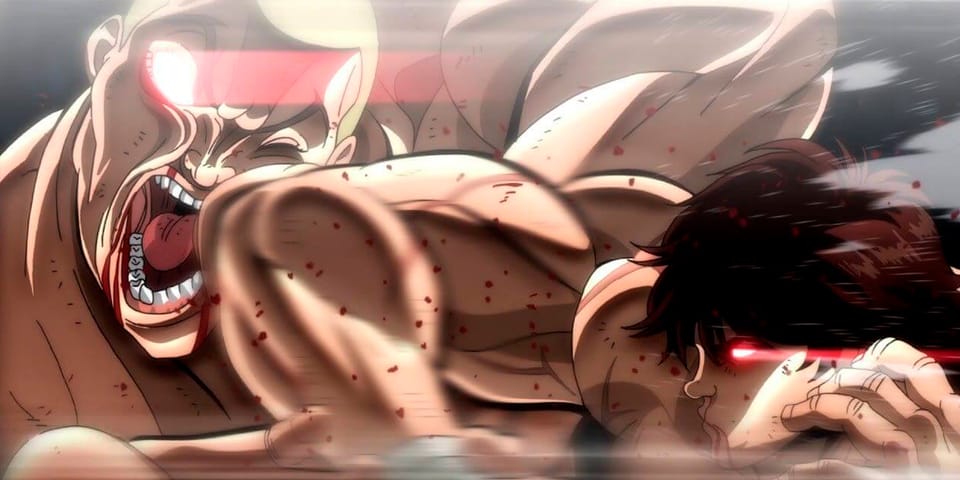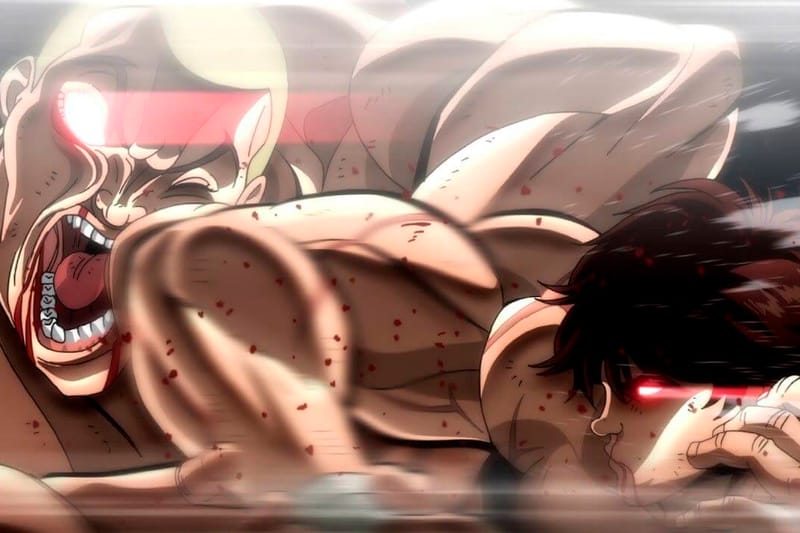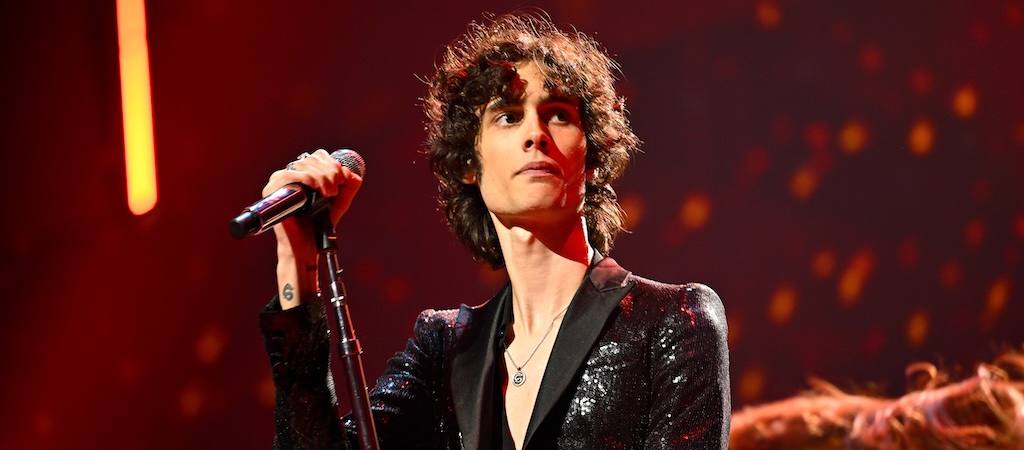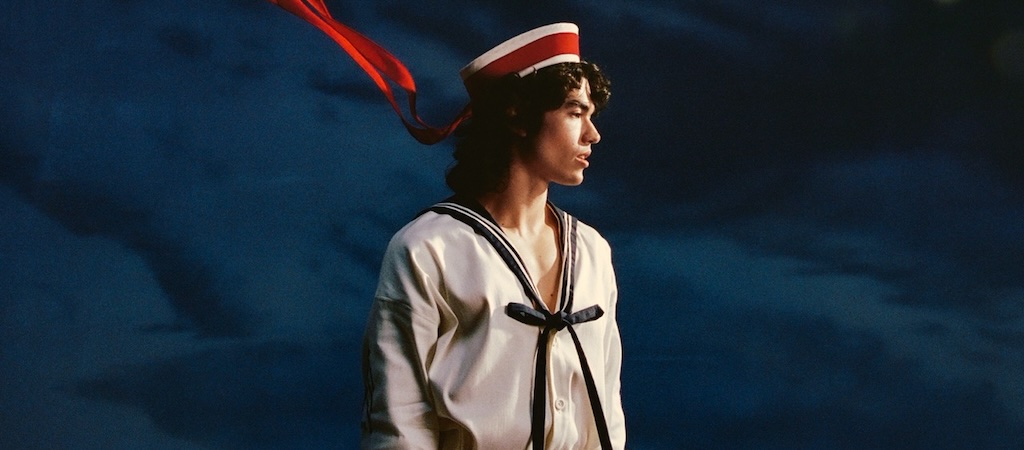
For many of those that grew up watching Dragon Ball Z, the popular anime series Baki Hanma, distributed globally by Netflix, provided a familiar sense of impactful storytelling, accented by thrilling martial arts action. Just like Akira Toriyama‘s everlasting story, Baki Hanma provides a carnal relatability fueled by the fighting action show in battles animated by studios TMS Entertainment. Coming together to uncover complex characters and relationships to express greater themes that carry lasting emotion.
Serving as a follow-up to 2018’s Baki, Baki Hanma (2021) adapts the manga of the same name written and illustrated by Keisuke Itagaki. Despite having multiple iterations, the general story chronicles Baki Hanma who embarks on grueling training and tests of his fighting skills after being handily defeated by his father, Yujiro Hanma, “The Ogre†and “Strongest Creature on Earth,†as a teenager. Intervention by his mother, Emi Akezawa, leads to her death at the hands of his father, causing him to harbor hatred towards Yujiro.
Following the traumatic event, Baki travels around the world to continue his martial art progression, leading him to deadly, no-rules hand-to-hand combat in an underground fighting arena. Matched with some of the most powerful fighters of various styles of martial arts, Baki furthers his aim to get stronger and ultimately surpass his father.
Fans were enamored by the over-the-top action shown in Season 1, Combat Shadow Fighting Saga/Great Prison Battle Saga, and have been looking forward to Season 2, Pickle Wars Saga. The upcoming season will see Baki go head-to-head against Pickle, a warrior from a bygone, primitive age. Although not much is known about the enigmatic figure, Pickle is known to be a primitive man found perfectly preserved in a saline rock formation, hence his name, and believed to have originally lived during the Jurassic/Cretaceous era. The fighter possesses enormous raw endurance and primitive durability, often relying on his primitive instincts.
While we patiently wait for Season 2 of Baki Hanma we have come up with a list of five similar animes to watch. Check out the openings for the five anime below.
Hajime no Ippo
[embedded content]
Written and illustrated by George Morikawa, Hajime no Ippo, is a manga centered around boxing that was adapted into a 75-episode anime back in 2000. The story follows Ippo Makunouchi, a timid high school student who helps run his family’s fishing business. After being rescued from bullies by professional boxer Mamoru Takamura, Ippo is taken to the Kamogawa Gym, where he begins his journey to become a professional boxer and discover the meaning of true strength.
Hajime no Ippo is renowned for its dynamic approach to character development through the lens of boxing and fighters. The show’s vibrant supporting cast and opponents create heartfelt moments and light-hearted side stories that explore their personal lives and paths in the boxing world. The series also features thrilling fight scenes that are intensified by the excellent animation, music, and sound design. Not to mention the emotion expressed by the characters pitted against each other, showing their resolve through their punches.
The first Hajime no Ippo anime adaptation was continued with the sequels Hajime no Ippo: New Challenger (2009) and Hajime no Ippo: Rising (2013), with fans still patiently waiting for a follow-up
Ashita no Joe
[embedded content]
Staying on the boxing theme, Ashita no Joe written by Asao Takamori (Ikki Kajiwara) and illustrated by Tetsuya Chiba, is considered one of the most influential titles in manga history. In 1970 and 1980, the series was adapted into an anime that covered the first 14 volumes of the manga. Ashita no Joe chronicles Joe Yabuki, an orphan who falls into Tokyo’s slums. Getting into a fight with a local gang, Joe attracts the attention of a washed-up alcoholic boxing trainer. Although the trainer takes Joe under his wing, he eventually ends up in prison where he meets Rikiishi Tooru, a former boxer. Upon his release, Joe decides to pursue a career in boxing.
The anime adaptation of Ashita no Joe remains faithful to the manga, beautifully capturing the illustration style of Chiba, despite the technological limitations of animation in the ’70s and ’80s. However, it is the directorial vision of Osamu Dezaki that truly brings the series to life. Dezaki’s framing and use of his innovative “Postcard Memory†technique, which freezes the frame in a pastel wash and builds on emotional moments, imbues the series with heart and emotional depth.
It is interesting to note, in 2018, Megalobox was released to celebrate the 50th-anniversary of the Ashita no Joe manga. The futuristic reimagining is centered around Rikiishi Toru, Joe’s fated rival and lifelong friend.
Hinomaru Sumo
[embedded content]
Hinomaru Sumo, written and illustrated by Kawada, uniquely covers the traditional Japanese sport of competitive full-contact wrestling. Adapted into an anime in 2018, the underdog story of Hinomaru Ushio centers on a young boy, Hinomaru Ushio, with big dreams of becoming a professional sumo wrestler, despite not meeting the minimum size requirement. His ultimate goal is to reach the highest class of sumo, Hinoshita Kaisan, but first must attain the coveted title of Yokozuna, which is awarded to the strongest wrestler in high school tournaments. To achieve this, he enrolls in Odachi High, a school that lacks a sumo club, with the hope of becoming a Yokozuna and forcing the professional sumo association to let him compete.
Aside from providing hard-hitting intensity, Hinomaru Sumo is notable for its depiction of the intricacies of sumo. Offering character development through a look at the hardcore training, tactics, strategies, reasons of fighting, and ultimately respect win or lose. The anime provides an interesting entry point into the sport of sumo that is often misunderstood.
Air Master
[embedded content]
Straying away from ubiquitous shÅnen stories, Air Master, written and illustrated by Yokusaru Shibata, is a fighting manga that uniquely features a female protagonist. The focus of the story is Aikawa Maki, a former gymnast who channels her athletic abilities into street fighting. Upon entering this new world, she realizes that nothing else makes her feel as alive as violence. By blending power and grace in her fighting style, she defeats one opponent after another, earning the moniker of “Air Master.â€
Although the plot of the 2003 anime adaptation is relatively simple, it is highly regarded for its unique portrayal of Aikawa Maki’s unorthodox fighting background. The series is an engaging watch, with plenty of thrilling fight scenes that provide exciting entertainment. The action sequences are skillfully choreographed and rooted in reality, featuring real-world martial arts that are executed with controlled flourishes, rather than relying on fantastical abilities.
Kinnikuman
[embedded content]
For fans of professional wrestling, Kinnikuman by the duo of Yoshinori Nakai and Takashi Shimada, known as Yudetamago, the series stands as a major part of Japanese pop culture. The protagonist of Kinnikuman is an unlikely superhero who also happens to be the prince of Planet Kinniku. Despite his outward appearance, Kinnikuman is a powerful and honorable fighter who must earn the right to ascend to the throne. Through wrestling competitions and battles, he faces off against evil Chojin, including the five contenders for the throne: Kinnikuman Big Body, Soldier, Zebra, Mariposa, and Super Phoenix.
The anime adaptation started with a 137-episode series that debuted back in 1983 and received a follow-up in 1991. Kinnikuman‘s anime adaptations are highly regarded for introducing themes that predate the arrival of Dragon Ball and Fist of the North Star. The animation masterfully captures the series’ over-the-top action, while conveying the vibrant character designs that define the original source material. One of the show’s standout features is its ability to blend unique pro-wrestling-themed fight scenes with comedic elements, all while keeping viewers invested in Kinnikuman’s quest for the throne.
For those unaware, Kinnikuman made its way to North America with its sequel Ultimate Muscle: The Kinnikuman Legacy, licensed by 4Kids and broadcasted on Fox Box in 2003. Additionally, a new anime celebrating the 40th anniversary of the original anime series is now reportedly in development.



